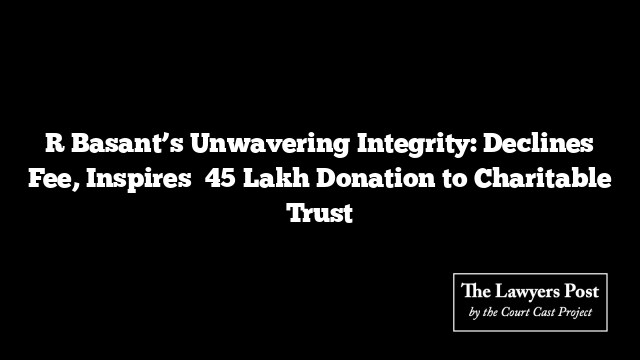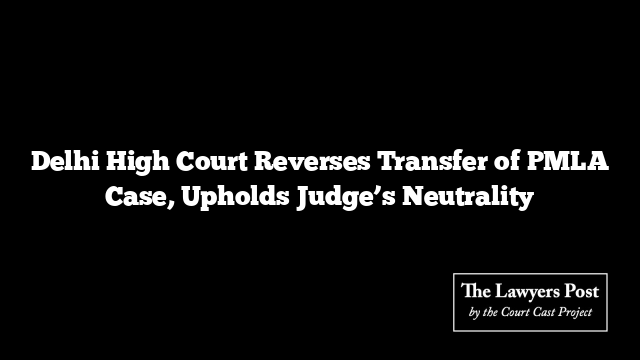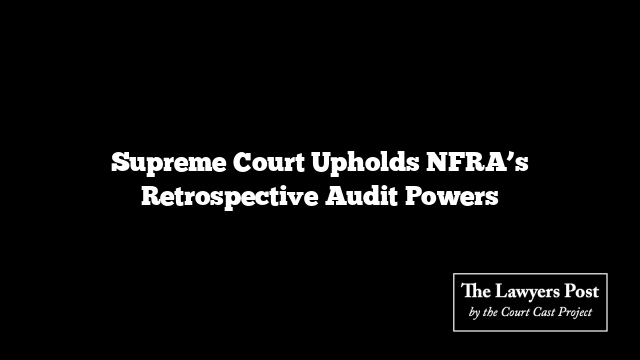In an admirable display of integrity and dedication, former Kerala High Court judge and now senior counsel R Basant recently refused any honorarium for his role as Amicus Curiae in resolving a protracted family dispute before the Supreme Court.
The Supreme Court commended Basant for his selfless service in the case [Farhat Sheikh vs Javed Zaki and ors]. Instead of accepting payment, Basant’s decision inspired the involved parties to donate a substantial sum to a charitable trust honoring Basant’s late mentor, Adv. K. Bhaskaran Nair.
The Court’s May 17 order highlighted, “Since the Amicus did not agree to receive any amount as honorarium for the work done, the parties have made a voluntary donation of Rs 45,00,000/- (Rs 15 lakhs each) to a registered public charitable trust – Adv. K. Bhaskaran Nair Foundation, a public charitable trust registered under the Income Tax Act, 1961 to perpetuate the memory of Late Advocate K. Bhaskaran Nair, Calicut, under whom the Amicus had started his legal career as a junior.”
This commendable act was part of a broader appreciation by the Bench of Justices JK Maheshwari and Sanjay Karol. They expressed gratitude to Basant and the other lawyers involved, acknowledging their efforts in bringing the long-standing family conflict to a peaceful resolution.
“It is the duty of the Court to acknowledge the assistance rendered by Mr. R. Basant, learned Amicus Curiae, the ESCROW Mr. A. Karthik, assisted by Mr. Akshay Sahay, to bring this litigation into a happy settlement between the members of the family. The Court is grateful for rendering such service by them and we acknowledge their assistance. We also acknowledge the cooperation rendered by Mr. Nazmi Waziri, Sr. Adv., Mr. Khowaja Siddiqui, Adv., Mr. Sanchit Garga, Adv., and Ms. Mithu Jain, Adv. for the disposal of this long-drawn litigation.”
The case, which involved multiple family members, had seen Basant and his associate A Karthik praised by the Supreme Court as far back as 2017 for their instrumental role in facilitating a settlement without charging any fees. When one party later failed to comply with the settlement terms, the dispute returned to mediation in 2022 and was finally resolved again, culminating in the Court’s recent order.





